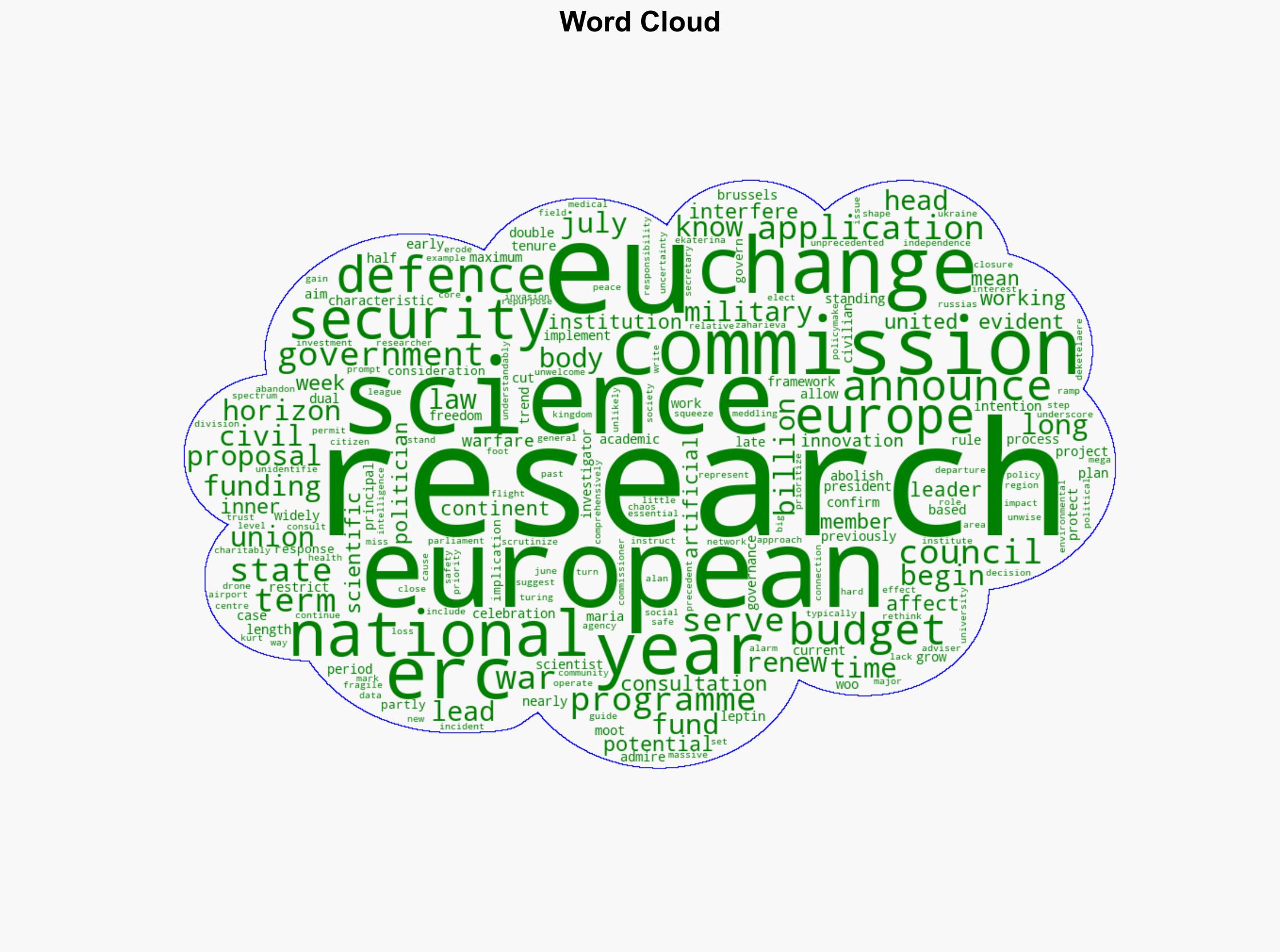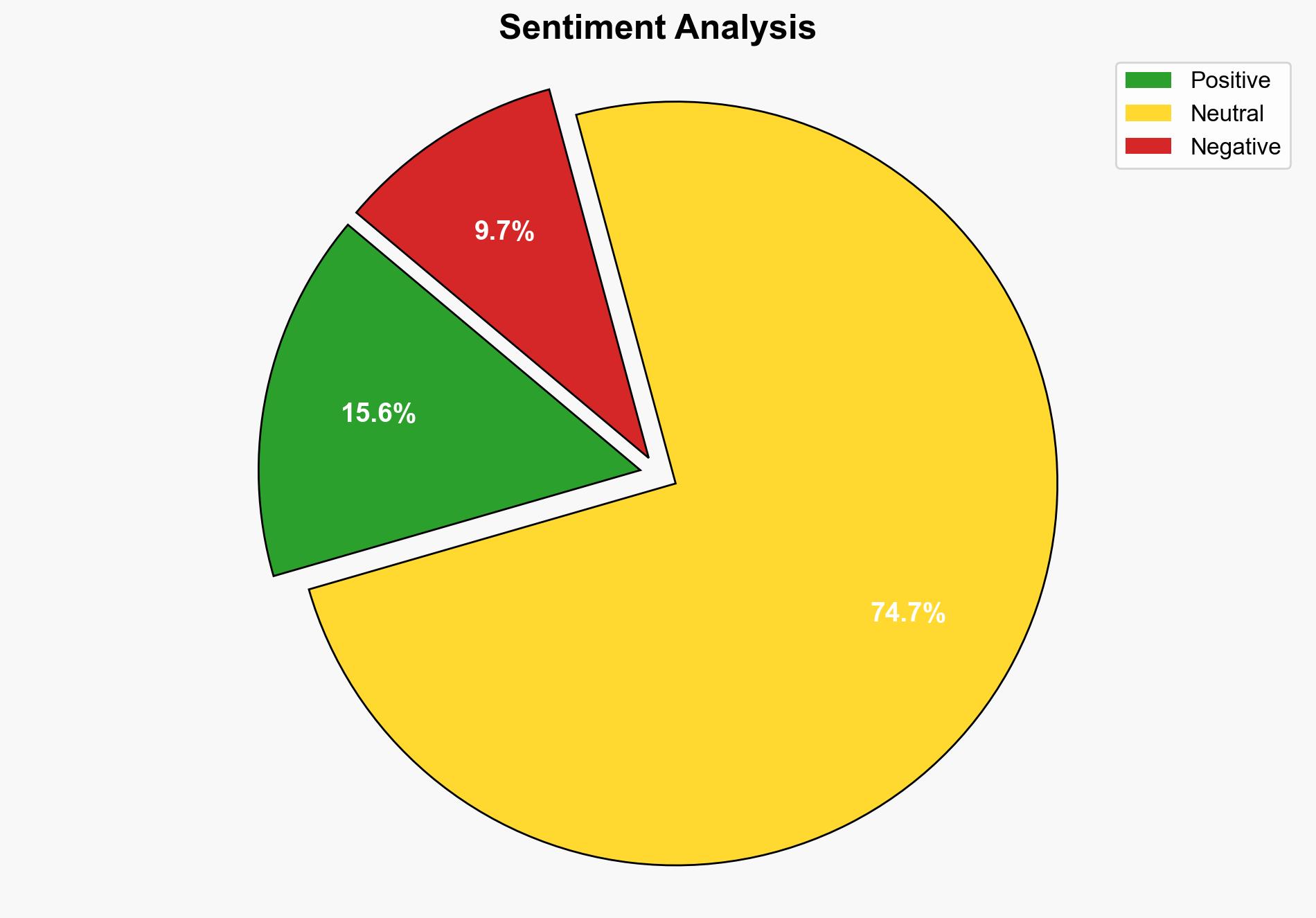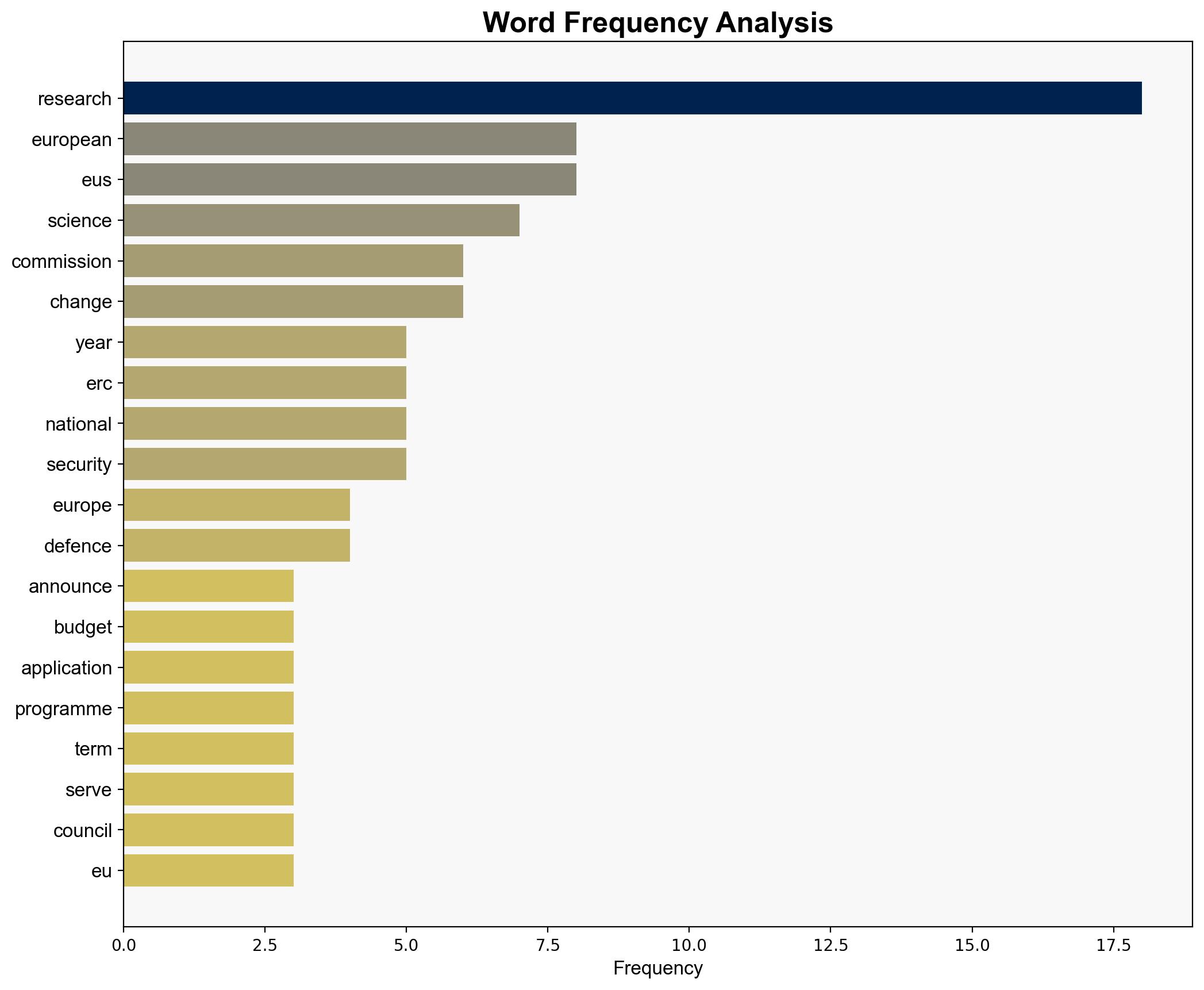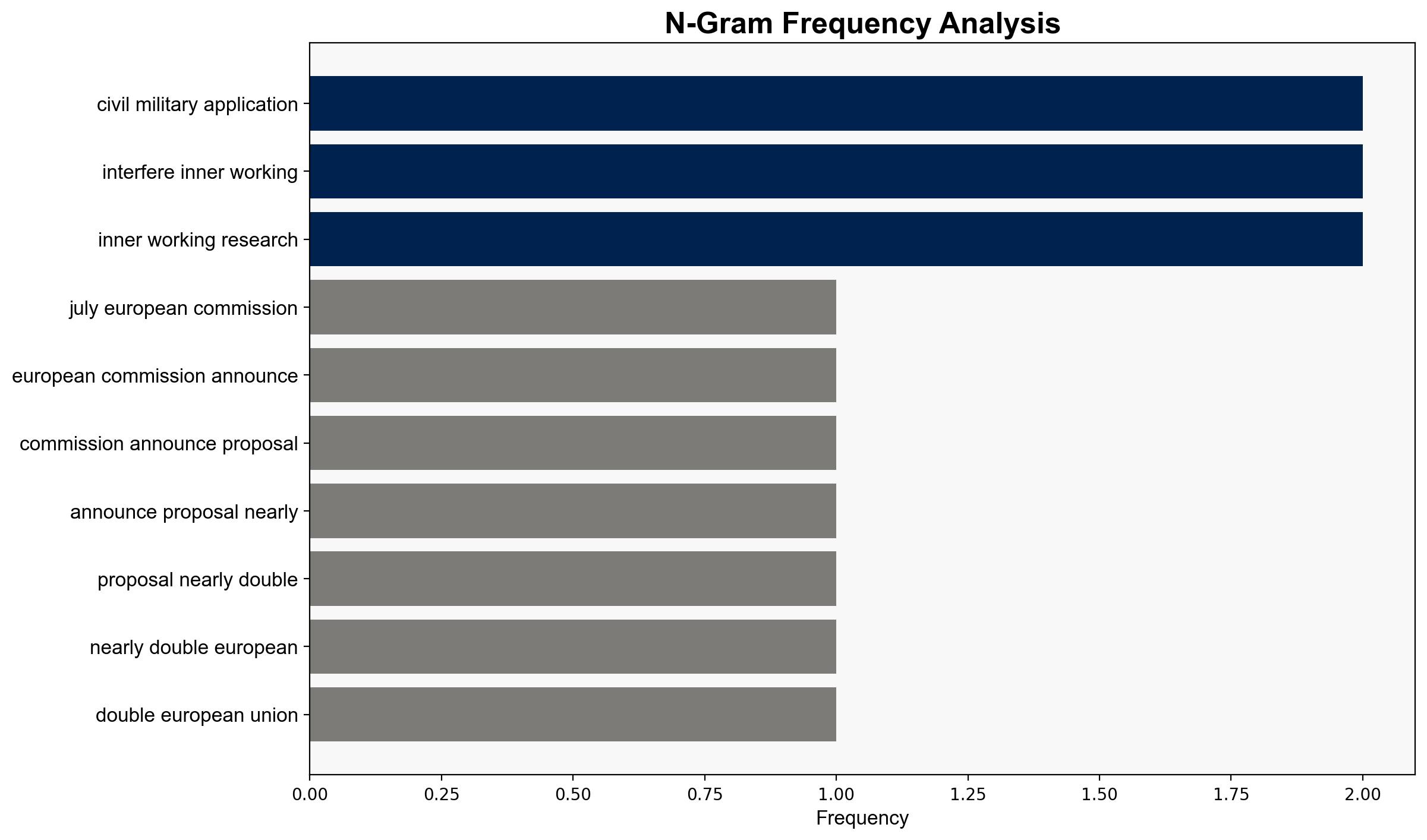The EUs Horizon research fund needs to stay a defence-free zone – Nature.com
Published on: 2025-10-07
Intelligence Report: The EUs Horizon research fund needs to stay a defence-free zone – Nature.com
1. BLUF (Bottom Line Up Front)
The European Union’s proposal to allow dual-use research within the Horizon Europe fund, traditionally restricted to civilian applications, is likely to face significant opposition due to concerns over academic freedom and the potential erosion of trust between researchers and policymakers. The hypothesis that the proposal will be modified or rejected is better supported. Confidence Level: Moderate. Recommended action: Engage in diplomatic dialogues to address concerns and explore alternative funding mechanisms that maintain civilian research integrity while addressing security needs.
2. Competing Hypotheses
Hypothesis 1: The EU will proceed with the proposed changes to allow dual-use research within the Horizon Europe fund, aligning with broader security priorities in response to geopolitical tensions.
Hypothesis 2: The EU will retract or modify the proposal following backlash from the scientific community and concerns over academic freedom and governance.
3. Key Assumptions and Red Flags
Hypothesis 1 Assumptions: The EU prioritizes security over academic independence. Assumes political pressure will outweigh scientific community opposition.
Hypothesis 2 Assumptions: The scientific community’s influence and public opinion can sway EU decision-making. Assumes that maintaining trust and academic freedom is a higher priority.
Red Flags: Lack of consultation with the scientific community and potential underestimation of backlash. Inconsistent messaging from EU officials regarding the balance between security and research freedom.
4. Implications and Strategic Risks
The proposal could lead to a shift in research priorities, potentially diverting funds from civilian projects to defense-related research. This may result in decreased innovation in non-defense sectors and strained relationships between EU institutions and the scientific community. Additionally, the move could set a precedent for increased political interference in research governance, impacting the EU’s global reputation as a leader in scientific freedom.
5. Recommendations and Outlook
- Engage in stakeholder consultations to address concerns and ensure transparency in decision-making.
- Consider establishing a separate fund for defense-related research to maintain the integrity of civilian research funding.
- Scenario Projections:
- Best Case: The proposal is modified to address concerns, preserving academic freedom while enhancing security research.
- Worst Case: The proposal is implemented as is, leading to significant backlash and reduced trust in EU research governance.
- Most Likely: The proposal is partially modified after negotiations, with some dual-use research allowed under strict conditions.
6. Key Individuals and Entities
Maria Leptin, European Research Council (ERC) President; Kurt Deketelaere, Secretary General of the League of European Research Universities; Ekaterina Zaharieva, European Commissioner for Research and Innovation.
7. Thematic Tags
national security threats, academic freedom, research governance, EU policy, geopolitical tensions





